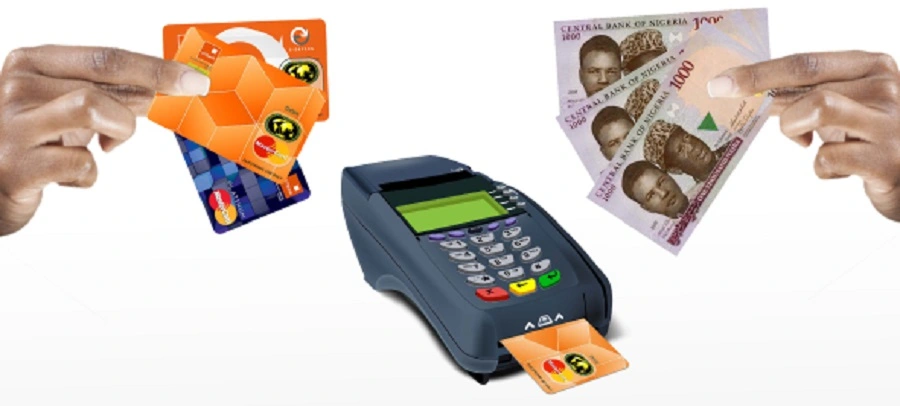The Central Bank of Nigeria (CBN) has been in the news recently for making moves that it says are to entrench a cashless economy and reduce the use of cash. The CBN first moved against cash hoarding, reacting to having 85% of its printed Naira notes outside of the banking system by designing new notes and giving a deadline for when people can return the old notes in a bid to take control of the notes in circulation.
Continuing further, the CBN also recently announced a policy limiting cash withdrawals for individuals and businesses from January 9, 2023. Along with this policy, the CBN also directed banks and financial institutions to only load their ATMs with lower Naira notes to discourage holding cash.
The CBN says these recent moves are to encourage a cashless economy and improve the digital economy. The benefits of moving Nigeria into becoming a cashless economy are numerous. Still, the realities on the ground have made a lot of people, including the National Assembly, disagree with the CBN.
In truth, Nigeria needs the infrastructure to support CBN’s recent policy. Nigeria has remained cash-heavy because the infrastructure required to transition into a cashless economy has not been fully developed.
A recent report by McKinsey revealed that there are 17 ATMs, 147 point-of-sale devices and four bank branches for every 100 000 Nigerians. Increased internet penetration is a known factor that drives cashless transactions, but Nigeria still has 38% internet penetration while the unbanked population is still at 50%. This data reveals why Nigeria is a cash-heavy economy and why transitioning to a cashless economy is simply a fanciful scheme.
One of the biggest hits from this new CBN policy is cash-in and cash-out agents who help banks and financial institutions deliver basic financial services to the last mile.
What are cash-in and cash-out services?
Cash-in and Cash-out service in English terms refer to the deposit and withdrawal of money. These are the basic financial services that Agency Banking (POS) agents deliver in Nigeria.
The everyday use cases of cash-in and cash-out services in Nigeria are numerous. With banks and financial institutions unable to serve the entire population, they use agents to deliver services to the last miles- the rural and semi-urban regions.
This model of delivering financial services has become critical in the Nigerian financial sector since the CBN released its guidelines on the operation and management of Agent Banking (Agency Banking) which is the overarching term used to describe cash-in and cash-out services.
With Know Your Customer (KYC) still difficult at that grassroots level, these agents can only provide basic financial services like deposit and withdrawal, which is cash-in and cash-out.
This model of banking has been beneficial to the whole financial ecosystem. It has helped banks and financial institutions to reach more customers, giving convenience, continuity and flexibility to the unbanked population. These cash-in and cash-out service agents also drive financial inclusion, which is critical to economic growth.
There’s also the benefit of employment, allowing these agents to make money and earn a living.
Everywhere you look around in Nigeria’s rural and semi-urban regions, you see banking agents with POS devices delivering financial services and earning commissions. Even local entrepreneurs now double as cash-in and cash-out service agents.
Cash-in and cash-out service agents have made so much impact in the Nigerian financial sector, which is why the new CB policy has been hard for them to take. This policy prevents them from having access to cash to deliver financial services to those who cannot get them elsewhere, no matter what the CBN does at this moment.
The show, however, must go on, and cash-in and cash-out agents will continue to deliver financial services. Another option is to pay processing fees to the bank for more cash and increase customer charges.
Also, while embracing a cashless economy, cash-in and cash-out service agents are essential in helping people turn their cash assets into digital assets and help people with affordable and accessible ways to switch between the worlds of cash and digital currency.
Cash-in and cash-out services will continue to be important in our world. Businesses, banks and financial institutions will continue to use that model of financial services to reach more customers and add another revenue stream to their businesses.
Fincra can help
With the continued impact of cash-in and cash-out service agents, Fincra has developed white-labelled solutions to help banks, financial institutions, fintechs, and businesses launch Agency Banking to provide cash-in and cash-out services through agents.
We explain in detail what white labelling is here, but simply put, Fincra has built the entire framework with which anyone can roll out a robust Agency Banking network without a single line of code.
From commercial and microfinance banks to a super agent, a Mobile Money Operator (MMO), a fintech or any business that has a distribution network, with Fincra, you can kickstart your branchless strategy in one week. It’s super easy.
Talk to us today, or get started yourself.




